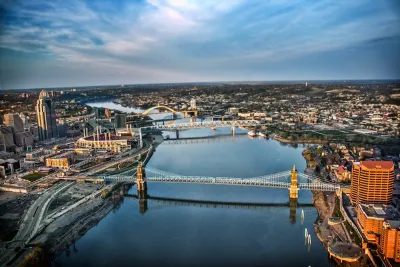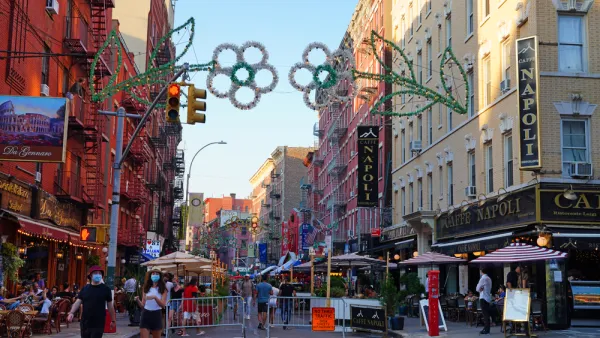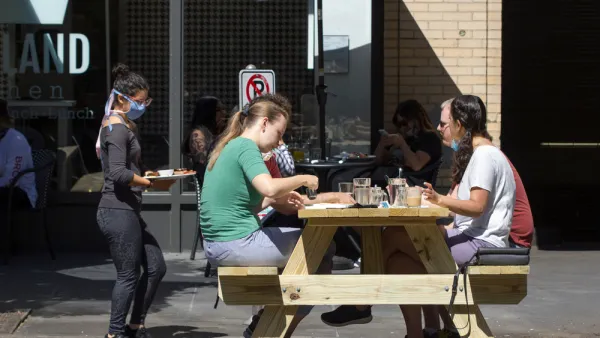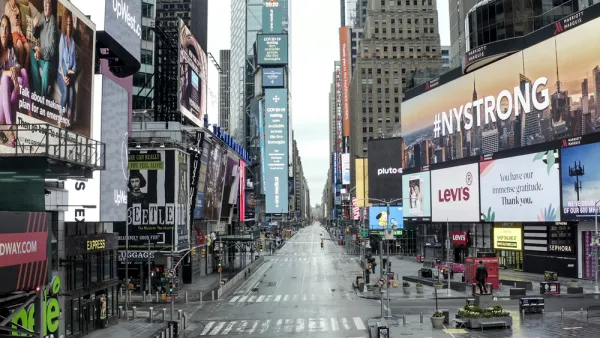Since the outbreak of the Covid-19 pandemic, there has been shortage of opinions on the coming evolution of cities. It’s time to check in with the debate.

“It takes a lot to kill a city,” says Mary Rowe, president and CEO of the Canadian Urban Institute, at the beginning of a recent Vox article that provides a roundtable discussion of experts on cities. The premise of the discussion: What is the future of cities, cutting through the culture war talking points and political propaganda that has dominated the discussion as the country emerges in fits and starts from the Covid-19 pandemic.
Here are the other experts cited in the article:
- Mary Rowe – “president and CEO of the Canadian Urban Institute”
- Richard Florida – “an urbanist and professor at the University of Toronto’s Rotman School of Management”
- Nicholas Bloom – “a Stanford economics professor who studies remote work”
- Emily Talen – “a professor of urbanism at the University of Chicago”
- Connor O’Brien – “Economic Innovation Group research associate”
- Ellen Dunham-Jones – “a professor and director of the urban design program at Georgia Tech’s architecture school”
- Esteban Rossi-Hansberg – “a professor in the University of Chicago’s economics department”
- Matthew Kahn – “an economics professor at the University of Southern California”
- Dror Poleg – “economic historian”
- Kenan Fikri – “research director at Economic Innovation Group”
- Arpit Gupta – “an associate professor of finance at NYU Stern”
For those keeping track at home, here are the number of times the article, between author and experts, mentions the following terms:
Climate: 3
Car(s): 1
Density: 1
Housing: 11
Transit: 5
Remote Work: 14
Covid: 2
Public Health: 0
Zoning: 1
Crime: 2
Pollution: 0
Air: 0
Water: 1
“Big cities — think New York City, Los Angeles, Chicago — will ultimately be okay, since a lot of what made them attractive in the first place is still there and impossible to find elsewhere. But that doesn’t mean they will — or can — stay the same,” writes post author Rani Molla to summarize the discussion.
“And while the move away from cities is overstated, even small shifts from powerhouses like NYC could represent windfalls for the suburbs, exurbs, and other cities those people choose to move to. That means smaller cities — like Cincinnati or Tulsa or Indianapolis — have a big opportunity to position themselves as destinations for those who do leave big cities, even as the largest urban areas are far from dying,” adds Rowe.
FULL STORY: The future of cities, according to the experts

National Parks Layoffs Will Cause Communities to Lose Billions
Thousands of essential park workers were laid off this week, just before the busy spring break season.

Retro-silient?: America’s First “Eco-burb,” The Woodlands Turns 50
A master-planned community north of Houston offers lessons on green infrastructure and resilient design, but falls short of its founder’s lofty affordability and walkability goals.

Delivering for America Plan Will Downgrade Mail Service in at Least 49.5 Percent of Zip Codes
Republican and Democrat lawmakers criticize the plan for its disproportionate negative impact on rural communities.

Test News Post 1
This is a summary

Test News Headline 46
Test for the image on the front page.

Balancing Bombs and Butterflies: How the National Guard Protects a Rare Species
The National Guard at Fort Indiantown Gap uses GIS technology and land management strategies to balance military training with conservation efforts, ensuring the survival of the rare eastern regal fritillary butterfly.
Urban Design for Planners 1: Software Tools
This six-course series explores essential urban design concepts using open source software and equips planners with the tools they need to participate fully in the urban design process.
Planning for Universal Design
Learn the tools for implementing Universal Design in planning regulations.
EMC Planning Group, Inc.
Planetizen
Planetizen
Mpact (formerly Rail~Volution)
Great Falls Development Authority, Inc.
HUDs Office of Policy Development and Research
NYU Wagner Graduate School of Public Service





























